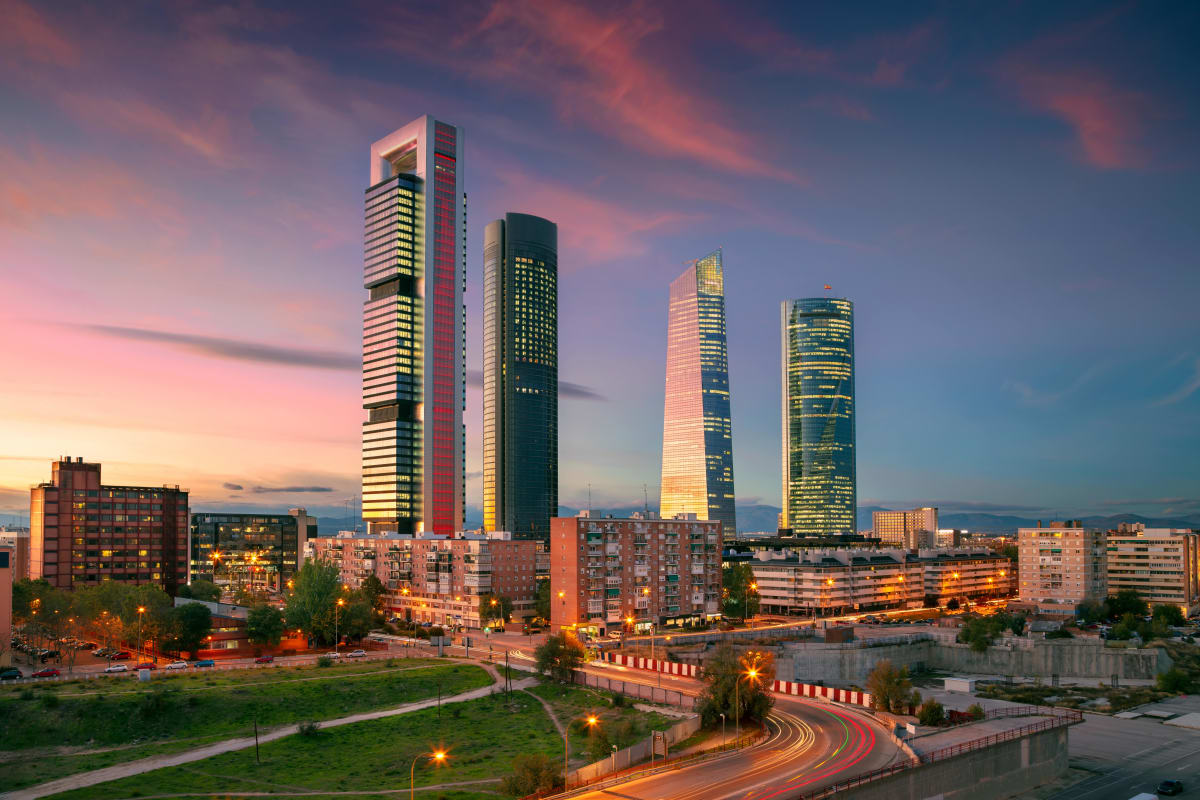Europe’s hybrid boom continues apace with central business districts (CBDs) and suburban areas opening up to real estate partnerships for hybrid work.
The hybrid boom in Europe shows no sign of slowing down – quite the opposite, in fact. Sales of IWG’s on-demand membership increased by 93% year-on-year overall in 2022, and by 123% in Spain – the location of a major new workspace.
The forthcoming opening in central Madrid is a reflection of the growth, showing how major capital cities and CBDs are increasingly open to real estate developments that facilitate hybrid work, just as suburban areas and commuter towns continue to benefit from the proliferation of flexspaces too.
IWG has secured 12,000m2 of space across an entire building, which leaves room for retail and restaurants as well as the Spaces Bernabéu centre. With room for nearly 1,000 hybrid workers at any given time, the workspace will house 180 offices and more than 900 work stations, helping to meet the surging demand for hybrid work.
Indeed, Spaces Bernabéu will become the largest flexible workspace in Spain. Located in a part of Madrid currently undergoing rapid modernisation, it will lie in what is currently the Moda Shopping Mall – opposite Real Madrid’s legendary Santiago Bernabeu stadium – which is itself undergoing the final touches of a major renovation. Workers at the centre will be able to take advantage of the mixed-used development and the wide range of shops, bars and amenities that brings.
Hybrid more mainstream than ever
Due to open in 2025, the new Madrid centre represents an extensive end-to-end project for IWG. Made possible by a partnership agreement with Mapfre, Spain’s largest insurance company, it’s proof that hybrid is increasingly attracting large, well-known investors.
The Madrid centre shows how real estate firms continue to view flexspaces as a key amenity to help them optimise properties and generate return on investment. By adapting to the flexible modern workforce on one hand, and businesses looking for scalable workplaces on the other, property owners and investors can get more out of their portfolio by enabling hybrid work.
The Madrid deal is part of a wider trend: a boom in hybrid across Europe. In research conducted by Ricoh Europe, European business leaders across the UK, Ireland, France, Germany, Italy, Spain and the Netherlands said that workers are on average 4% more productive in a hybrid work setting. This is equivalent to adding an extra €113bn to the European economy compared with pre-pandemic ways of working.
Companies reaping rewards
And it’s not just the wider European economy benefiting from the hybrid boom. Individual companies are reaping the rewards of increased agility and flexibility with managing their work spaces, too.
Analysis by research firm Global Workplace Analytics has shown that hybrid working can save organisations more than US$11,000 per employee a year on average. Technology giant Cisco, which has a long-established tradition of flexible working, is a case in point, revealing that the shift to hybrid working has saved them around US$500m over the last five years.
Little wonder then, that hybrid is here to stay – and legislation sweeping across Europe looks set to further cement this model of working. In a number of European countries, workers are set to be given the legal right to request flexible working, which could add further momentum to the seismic changes in how companies are negotiating their office spaces. The IWG-Mapfre deal and Spaces Bernabeu could not be more emblematic of the changing landscape.
IWG provides hybrid office space for some of the world’s biggest companies, delivering sustainable demand and income for our partners. Find out more about developing a location with IWG.






